Every misleading statement Boris Johnson has made to parliament since the general election
Misleading the country: The prime minister has failed formally to correct at least 17 false statements since the 2019 general election
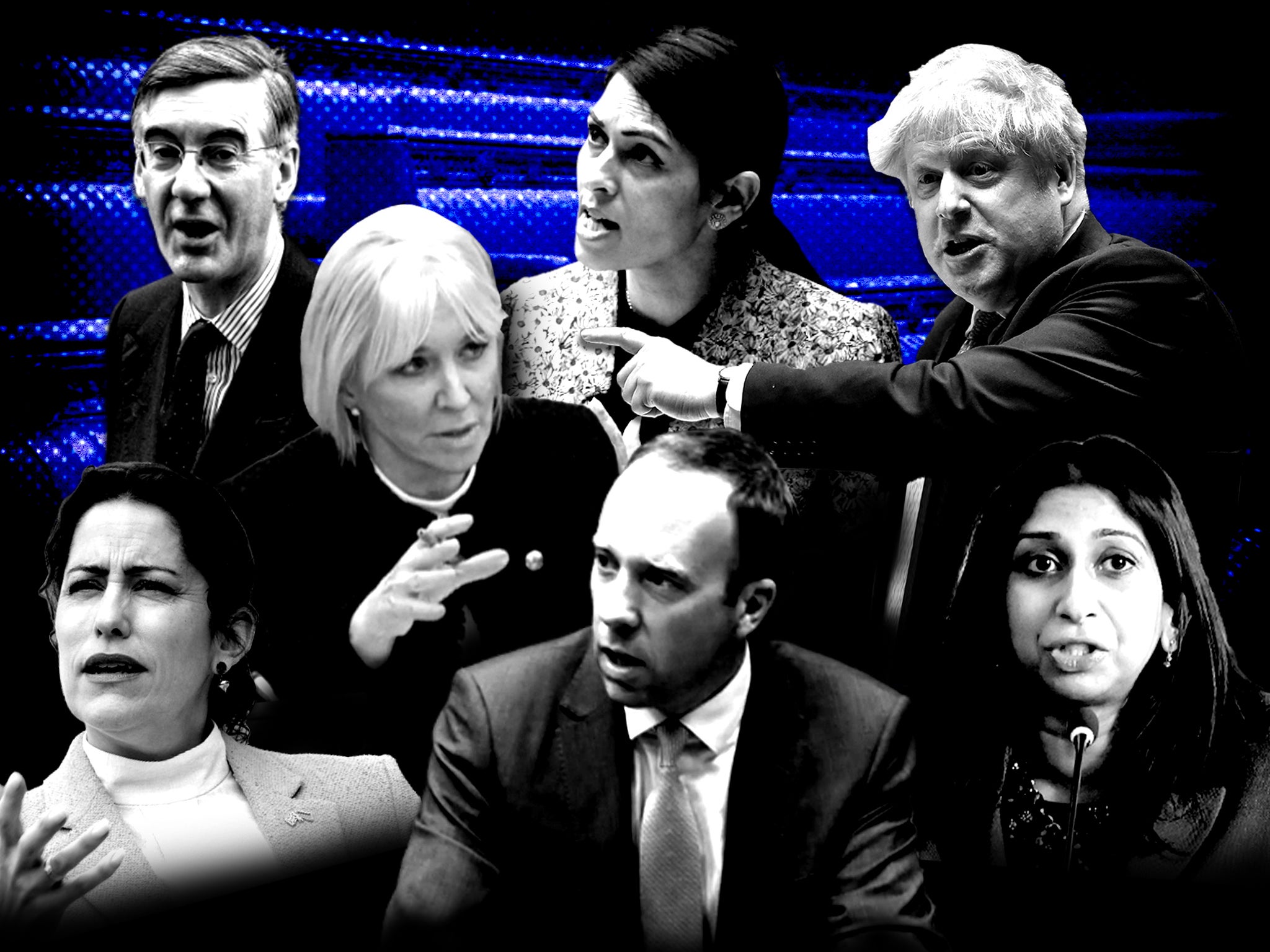
Your support helps us to tell the story
From reproductive rights to climate change to Big Tech, The Independent is on the ground when the story is developing. Whether it's investigating the financials of Elon Musk's pro-Trump PAC or producing our latest documentary, 'The A Word', which shines a light on the American women fighting for reproductive rights, we know how important it is to parse out the facts from the messaging.
At such a critical moment in US history, we need reporters on the ground. Your donation allows us to keep sending journalists to speak to both sides of the story.
The Independent is trusted by Americans across the entire political spectrum. And unlike many other quality news outlets, we choose not to lock Americans out of our reporting and analysis with paywalls. We believe quality journalism should be available to everyone, paid for by those who can afford it.
Your support makes all the difference.Boris Johnson and his ministers have made at least 27 false statements to parliament since the 2019 general election – and have failed to correct them.
An investigation by The Independent, working with Full Fact, has found that the prime minister made 17 of the statements, while four were made by Matt Hancock as health secretary, two by home secretary Priti Patel, and one each by attorney general Suella Braverman, culture secretary Nadine Dorries, Afghan resettlement minister Victoria Atkins, and Jacob Rees-Mogg, leader of the House of Commons.
The figures have sparked accusations of a “crisis of honesty”. Labour accused the government of disrespecting the public with a “litany of lies and falsehoods”, while the Conservative former attorney general Dominic Grieve said the total suggested “a disregard both for good governance and truth”.
None of the statements has been formally corrected – a process that is required under the ministerial code.
The Independent has only included statements made either in parliament or to parliamentary committees, and has counted each false claim once, even if it was repeated.
2 March 2022: Prime minister on the number of refugees hosted by Britain
Boris Johnson claimed during Prime Minister’s Questions that the UK had “taken more vulnerable people fleeing theatres of conflict” since 2015 than other European countries.
While responding to a question on Ukrainians stuck in the war zone, he added: “The House should be proud, by the way, of what the UK has already done to take vulnerable people; I think we have taken more vulnerable people fleeing theatres of conflict since 2015 than any other country in Europe.”
What was incorrect:
The claim would only be correct if it referred solely to people resettled through government schemes, and ignored the hundreds of thousands of people who have been granted asylum through other processes or “taken” in other ways.
Downing Street confirmed that Mr Johnson’s claim was based on data showing that between 2015 and 2019 the UK had resettled more people than any country in the EU – a total of 24,670.
Home Office figures show that the UK resettled 823 people in the year ending December 2020, and another 1,587 people in the year ending December 2021.
Outside of official resettlement schemes, other countries in the EU have offered protection to far more people claiming asylum.
When the number of positive first-instance decisions on asylum applications between 2015 and 2019 is compared, several EU countries are far ahead of Britain.
Germany has by far the highest total, of 982,695, compared to 57,560 by the UK in the same period.
9 February 2022: Prime minister on Downing Street Christmas quiz photo
During Prime Minister’s Questions, an MP asked Mr Johnson about a photo that had recently been published online by the Daily Mirror. Fabian Hamilton said: “A photo has emerged of the prime minister in Downing Street, on 15 December 2020, surrounded by alcohol, food and people wearing tinsel. It looks a lot like one of the Christmas parties that he told us never happened.”
Mr Hamilton asked the prime minister if he would be referring the gathering to the police, as it was not among those under investigation at that time.
The prime minister replied: “In what the honourable gentleman has just said, I am afraid he is completely in error.”
Later in the same session, Labour MP Gerald Jones asked whether the prime minister would “refer the matter to the police, because it is not one of the parties that are already being investigated by the Metropolitan Police”.
Mr Johnson replied: “That is precisely the point—it already has been. That event already has been submitted for investigation.”
What was incorrect:
Mr Fabian’s question was not “completely in error”. He was accurate in his description of the photo that had been published, although its status as a “Christmas party” is disputed by Downing Street.
The Metropolitan Police had initially decided that the event did not meet the threshold for criminal investigation, but announced a review of that decision after the photograph was published.
A statement suggested that the image had not previously been seen in material that was referred from the separate Cabinet Office probe.
At the time of Mr Johnson’s statement, the 15 December 2020 event had not been investigated by the Metropolitan Police. It has so far announced the issuing of 20 fines over the gatherings under investigation.
3 February: Jacob Rees-Mogg calls the morning-after pill an ‘abortifacient’
In response to Labour MP Dame Diana Johnson, who mentioned that Boots has reduced the price of its morning after pill, the Leader of the House said: “ The right honourable Lady cannot expect me to speak in favour of abortifacients.” Mr Rees-Mogg has previously spoken about his opposition to abortion due to his Catholic faith.
What was incorrect:
The medical definition of an abortifacient is a drug, chemical preparation, or even herb that induces an abortion.
But the morning after pill doesn’t induce an abortion. It prevents pregnancy from occurring after unprotected sex by delaying the release of an egg (ovulation).
This is why it’s referred to as emergency contraception, and is different from a medical abortion, induced by what’s sometimes described as the abortion pill. They are two different medications.
The British Pregnancy Advisory Service (BPAS), says: “[Emergency contraception] prevents pregnancy, but it cannot end a pregnancy nor damage an existing pregnancy.”
2 February 2022: Home secretary suggests people who are not Syrian or Afghan are ‘economic migrants’
In an evidence session held by the House of Commons Home Affairs Committee, the home secretary was questioned on the government’s strategy for reducing small boat crossings and providing alternative routes.
Conservative MP Tim Loughton asked what safe and legal routes were available for asylum seekers who did not qualify for resettlement schemes targeting Afghans and Syrians.
Mr Loughton asked: “If you are not Syrian or Afghani, what safe and legal routes are available now?”
Ms Patel replied: “Economic migrants do not need safe and legal routes because they should be claiming asylum in many of the other countries that they are travelling through, rather than doing the asylum shopping that we see taking place … the majority of them [crossing the English Channel] are people who are not claiming asylum or fleeing persecution.”
What was incorrect:
The Home Office’s most recent asylum statistics, released in November, said “almost all” people who arrive on small boats claim asylum.
Two thirds of all applications were granted on the first decision, while half of appeals were successful.
The report said there were more than 37,500 asylum applications in the year to September 2020, relating to 44,000 men, women and children mainly from Iran, Eritrea, Albania, Iraq and Syria.
“The increase in applications is likely linked, in part, to the easing of global travel restrictions that were in place due to the Covid-19 pandemic, and to an increase in small boat arrivals to the UK (of which almost all claim asylum),” it added.

31 January 2022: Prime minister claims crime has fallen by 14 per cent
Following a statement on Sue Gray’s redacted interim report on parties held at Downing Street during Covid restrictions, the prime minister listed his government’s achievements and claimed it had been “cutting crime by 14 per cent”.
He repeated the claim a second time later in the debate, when asked whether more criminals were getting away with crimes, saying: “What we are actually doing is cutting crime by 14 per cent and putting 20,000 more police on the streets.”
What was incorrect:
The prime minister appeared to be referring to statistics from the Crime Survey of England and Wales, which uses people’s reported experiences of crime rather than those recorded by police.
In the year to September, compared with the year to September 2019, the survey showed a 14 per cent increase in total crime. The figures were only down by 14 per cent if surging fraud and computer misuse are excluded from the total.
The Office for National Statistcs (ONS) said the crime survey was not a reliable measure of high-harm crimes, such as serious violence, which are better measured by police figures.
“The number of incidents decreased for many types of crime during periods of national lockdowns,” its report added. “However, police-recorded crime data show indications that over the last six months, certain offence types are returning to or exceeding the levels seen before the pandemic.”
The error resulted in the Liberal Democrats complaining to the UK Statistics Authority, which said “ONS measures of crime must be used accurately, and not misrepresented”.
Chair Sir David Norgrove said he would write to the prime minister’s office, saying Mr Johnson “did not make clear” that the figure excluded fraud and computer misuse.
“The ONS bulletin quite properly includes fraud and computer misuse in total crime,” he added.
Separate figures released by the Home Office on the same day showed that prosecution rate for all crimes had hit a record low in England and Wales, meaning that more criminals could be “getting away with crimes” as the prime minister was asked.
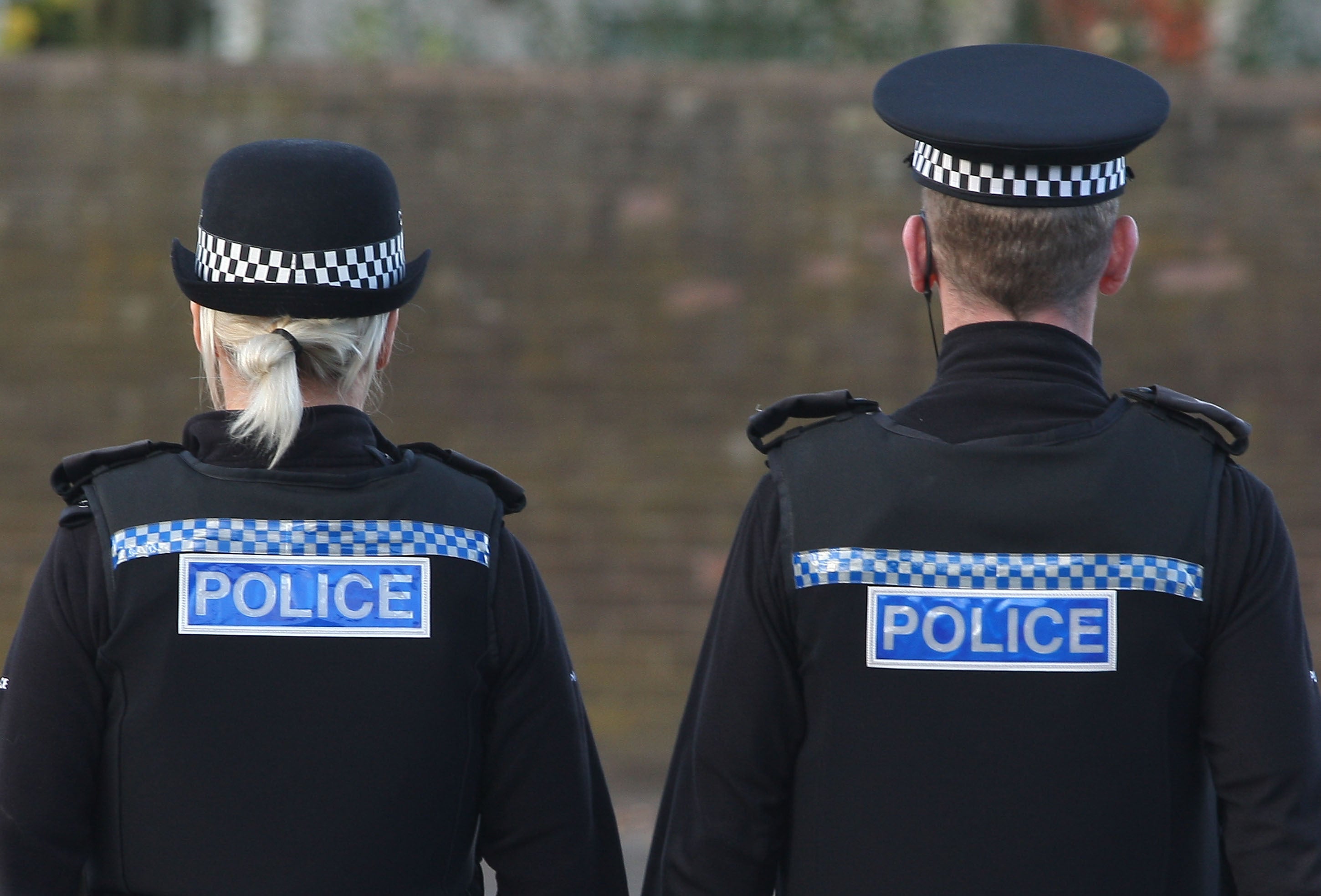
31 January 2022: Prime minister blames Sir Keir Starmer for ‘failing to prosecute Jimmy Savile’
During the same debate, following a statement on Sue Gray’s report on Downing Street parties, attacked the Labour leader Sir Keir Starmer.
He said: “This leader of the opposition, a former Director of Public Prosecutions—although he spent most of his time prosecuting journalists and failing to prosecute Jimmy Savile, as far as I can make out - chose to use this moment continually to prejudge a police inquiry.”
What was incorrect:
Sir Keir was director of public prosecutions from 2008 to 2013, leading the Crown Prosecution Service (CPS).
A report published in 2013 found a chance to convict Savile for sex offences against three victims when he was alive was missed because police and prosecutors did not take the claims seriously enough.
Sir Keir played no role in the decision not to prosecute Savile, but as head of the CPS he apologised on behalf of the organisation.
Mr Johnson has refused to withdraw the claim, despite calls from MPs of all parties after it was repeated by anti-vaxx protesters who mobbed Sir Keir in Westminster days after his statement.
His time leading the CPS also saw a series of journalists prosecuted for phone hacking, although it is unclear whether Sir Keir personally brought those charges, or how they could have taken up “most of his time” during his five-year term as director of public prosecutions.
19 January 2022: Prime minister claims the UK is capable of producing 80 per cent of its PPE
During Prime Minister’s Questions, Mr Johnson claimed the UK is now capable of producing 80 per cent of its own personal protective equipment (PPE).
“People across government have been working flat out to protect the British public with huge quantities of personal protective equipment, so we can now make 80 per cent of it in this country,” he said, later adding: “Thanks to the efforts of people across Whitehall, this country is now capable of producing 80 per cent of our own PPE.”
What was incorrect:
The claim appears to be based on a snapshot figure covering the short period from 1 December 2020 to 28 February 2021 when, according to the Department of Health and Social Care (DHSC), the UK-produced supply of PPE constituted 82 per cent of expected demand.
Full Fact could find no more recent equivalent figures, and was told by spokespeople both for Number 10 and the DHSC that these were the most recently available figures - despite being almost a year out of date.
The claim that the UK produces 80 per cent of its own demand for PPE is misleading as the figure does not include gloves.
According to the National Audit Office, the DHSC estimated that 19.6 million gloves would be needed each day to tackle the Covid-19 crisis as of April 2020. The same document says that all the other PPE needed (including aprons, masks and eye protection), amount to 24.5 million items—meaning gloves made up almost half of the total.
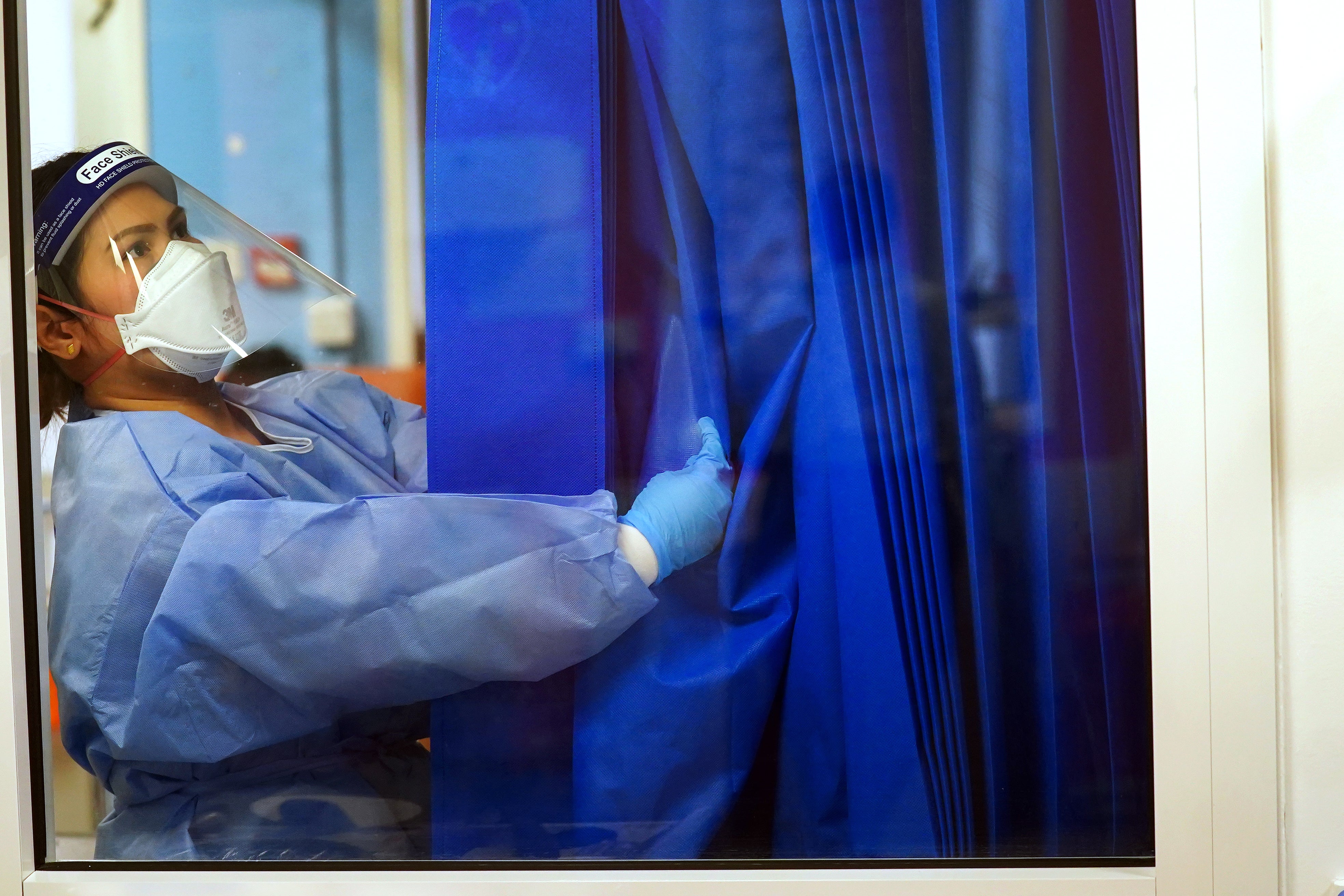
13 January 2022: Prime minister claims the UK has ‘the fastest growing economy in the G7’
During Prime Minister’s Questions, Mr Johnson claimed the UK was the fastest growing economy in the G7, which is a group of advanced world economies including Canada, France, Germany, Italy, Japan, the UK and the USA.
It was one of several times the prime minister made the claim to parliament during recent weeks.
What was incorrect:
The claim is only true for the change between the third quarter of 2020 and the third quarter of 2021.
The UK’s growth was fifth when comparing the second and third quarters of 2021 and over the course of the pandemic so far (between the fourth quarter of 2019 and the third quarter of 2021), the UK’s economy has experienced the second worst growth among the G7, contracting by 1.5 per cent.
Additionally, economic growth figures for the UK and other countries are not entirely comparable due to the way in which the UK calculates the output of its health and education sectors.
6 January 2022: Suella Braverman and Victoria Atkins claim Channel crossings are illegal
During separate debates in the House of Commons, both the attorney general and Afghan resettlement minister labelled small boat crossings in the English Channel “illegal”.
In a debate on the Nationality and Borders Bill’s compatibility with international law, Ms Braverman said: “We need to take tangible action to deal with the problem of illegal migrants crossing our Channel … to get on an illegally manned vessel and to try to break through our borders illegitimately is dangerous, immoral and unlawful.”
The attorney general said the government’s Nationality and Borders Bill would “stop the illegal and dangerous trafficking of illegal migrants”.
In a separate debate held the same day on the Afghan citizens’ resettlement scheme, Ms Atkins said she understood an MPs’ “concerns about illegal migration - the flimsy boats across the Channel.”
What was incorrect:
Home Office figures show that “almost all” migrants crossing the English Channel in small boats are asylum seekers.
Under British law, people must be present in the country in order to claim asylum, and trying to reach the country for that purpose is not an illegal act.
There is no asylum visa and campaigners say existing resettlement schemes are insufficient, but the government has rebuffed calls to expand safe and legal routes.
The predominantly France-based people smugglers who organise small boat crossings are committing offences, but it is not currently a crime to make the journey as a passenger.
The position has been clarified by a series of legal challenges at the Court of Appeal, which has so far quashed the convictions of 12 asylum seekers who were wrongly jailed for steering dinghies.
Judges found the Home Office had adopted a “heresy about the law”, and operated under the mistaken belief that all small boat passengers had committed the offence of illegal entry.
On 21 December, Lord Justice Edis said: “As the law presently stands, an asylum seeker who merely attempts to arrive at the frontiers of the United Kingdom in order to make a claim is not entering or attempting to enter the country unlawfully.”
The senior judge said that although the government was trying to enable the prosecution of passengers on intercepted dinghies with the Nationality and Borders Bill, such crossings are not currently illegal.
5 January 2022: Prime minister denies previously saying that fears about inflation were ‘unfounded’
During Prime Minister's Questions, Boris Johnson denied previously saying that fears about inflation were “unfounded”.
Labour’s deputy leader Angela Rayner, who was standing in for Sir Keir Starmer following a positive Covid test, said: “In October, the Prime Minister said that fears about inflation were ‘unfounded’, but working people across the country are starting the new year facing rising bills and ballooning prices, so how did he get it so wrong?”
The prime minister replied: “Of course, I said no such thing, because inflation is always something that we have to be careful about.”
What was incorrect:
During an interview with Sky News on 5 October 2021, Mr Johnson was asked: “Are you worried about inflation?”
He said: “People have been worrying about inflation for a very long time. I’m looking at robust economic growth, and by the way those fears have been unfounded.”
This was widely covered at the time, with his use of the word “unfounded” reported as a comment on the current situation at the time he spoke.
Number 10 did not respond when contacted by Full Fact for comment. However on 12 January, Labour MP Ruth Cadbury asked Mr Johnson during the following week’s Prime Minister’s Questions if he would correct the record and apologise for saying he said “no such thing”.
Mr Johnson replied: “No, because I immediately said in my answer to the question that of course we have to be concerned about inflation at all times. What I said, I think on TV, was that some of the predictions then about inflation had not proved well-founded, but clearly inflation is a serious risk.”
5 January 2022: Prime minister gets Warm Home discount scheme figures wrong
During Prime Minister’s Questions on 5 January, Boris Johnson twice claimed that the Warm Home discount scheme supports households with a £140-per-week reduction on their energy bill.
“What the government are doing is supporting people throughout the pandemic: 2.2 million people supported with the Warm Home discount, worth £140 per week,” he said.
Mr Johnson then repeated the claim in response to questions from Labour’s deputy leader Angela Rayner, saying: “Let me remind her that the Warm Home discount already supports 2.2 million people to the tune of £140 a week”.
What was incorrect:
The Warm Home discount scheme offers some low-income households a one-off discount of £140 directly on their energy bill between October and March. This means the discount is worth £140 over an entire winter, not every week.
5 January 2022: Prime minister claims income inequality is falling
At Prime Minister’s Questions, Boris Johnson claimed economic inequality is falling. “If we look at the statistics, we see that economic inequality is down in this country. Income inequality is down and poverty is down,” he told MPs.
What was incorrect:
Income inequality is often measured using something known as the Gini coefficient, which measures inequality on a percentage scale, where 0 per cent would be a society where everyone earns the same amount, while 100 per cent would be where one person earned everything.
The Department for Work and Pensions says income inequality was stable between 2018-19 and 2019-20, at 35 per cent before housing costs are taken into account, and 39 per cent after they have been taken into account. However, the department also noted that income inequality has been gradually rising since 2011.
The most recent data from the Office for National Statistics (ONS), which measures income inequality in a similar way using a different survey, says: “In the period leading up to financial year ending 2020 (April 2019 to March 2020), just before the coronavirus pandemic, income inequality steadily increased to 36.3 per cent..
“This was the highest reported measure of income inequality over the 10-year period leading up to the financial year ending (FYE) 2020.”
The ONS added: “The gap between the richest in society and the rest of the population has widened over the 10-year period; the income share of the richest 1 per cent increased from 7 per cent to 8.3 per cent between FYE 2011 and FYE 2020.”
The Equality Trust told Full Fact that there is no conventional measure which shows income inequality falling prior to the pandemic.

15 December 2021: Prime minister says the proportion of the UK’s population with a Covid booster jab is double that of other European countries
During prime minister’s questions, he told MPs: “We have done almost double the percentage of any other European country. We have boosted 86 per cent of the over-80s in this country and 91 per cent of those aged 75 to 79. That is an astonishing achievement.”
What was incorrect:
It appears the prime minister may have meant to refer to the European Union average. Later that day, he said: “The UK as a whole now has twice as many boosters per head as the EU”. This is correct.
The latest figures available at the time from Our World in Data, covering 12 to 14 December, showed that Iceland had boosted more of its population 54 per cent, compared to the UK on 25 per cent..
1 December 2021: Prime minister says Covid guidance was followed at Christmas gathering
At Prime Minister’s Questions, the Labour leader Sir Keir Starmer asked: “As millions of people were locked down, was a Christmas party thrown in Downing Street for dozens of people on 18 December 2020?”
Boris Johnson replied: “All guidance was followed completely in Number 10.”
Sir Keir continued to press, saying that at the time, government guidance stated that “you must not have a work Christmas lunch or party”.
Mr Johnson responded: “I have said what I have said about Number 10 and the events of 12 months ago.”
What was incorrect:
The party, which was first reported by the media, is one of at least a dozen Downing Street and Whitehall gatherings currently under police investigation. The probe has so far resulted in 20 fines for breaches of Covid laws.
The laws in place at the time were less strict than the guidance, which Mr Johnson claimed to have followed.
Government guidance was not legally binding, and compliance is being assessed by the Cabinet Office rather than police.
Sue Gray’s redacted interim report did not give details of the 18 December 2020 event, because of the ongoing police investigation, but general findings stated: “At least some of the gatherings in question represent a serious failure to observe not just the high standards expected of those working at the heart of government but also of the standards expected of the entire British population at the time.”
The report, confirmed that since Tier 2 restrictions had come into force in London on 2 December 2020 indoor gatherings were banned unless specific exemptions applied.
It said that at the time, government guidance stated: “Although there are exemptions for work purposes, you must not have a work Christmas lunch or party, where that is a primarily social activity and is not otherwise permitted by the rules in your tier.”

29 November 2021: Culture secretary says Channel 4 is ‘in receipt of taxpayers’ money’
Nadine Dorries told a select committee hearing at the House of Commons that Channel 4 was “in receipt of public money”. On another occasion during the same hearing she said it was “in receipt of taxpayers’ money”.
What was incorrect:
The Treasury classifies Channel 4 as a “self financing public corporation”. In order to meet this definition, a public corporation “must trade profitably and not require subsidies or other financial support from its parent department”.
Channel 4 is a “public corporation”, which entirely funds itself through commercial activities, mainly advertising. The most recent year’s figures show that the channel generated a pre-tax surplus.
In a tweet following the hearing, Ms Dorries elaborated on her comments by saying: “C4 borrowings sit on the Gov balance sheet. Gov has no money of its own, it’s tax payer derived. This is part of the debate re privatisation decision/ future sustainability.”
It’s true that Channel 4’s borrowing counts as government borrowing but Full Fact could find no evidence of the government ever having to cover the channel’s debts.
Channel 4 also pays tax to the government, so it may be a net contributor to the public purse.
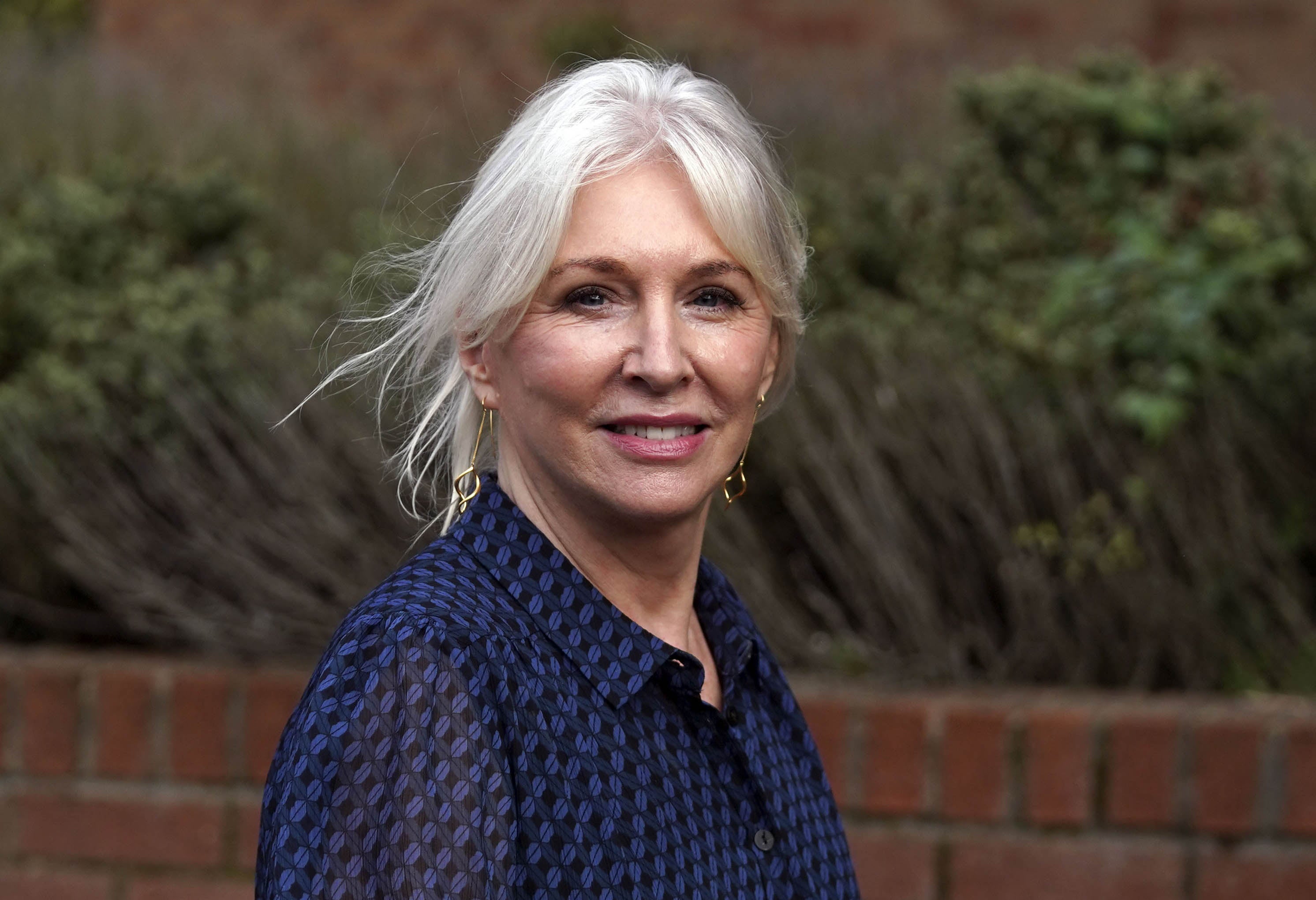
24 November 2021: Prime minister claims more people are in work than at the start of the pandemic
During Prime Minister’s Questions, Boris Johnson said: “There are more people in work than there were before the pandemic began.”
He repeated the same claim in parliament on 1 December and 15 December, and again on 5 January, as well as in media interviews. It was also taken up by other Conservative MPs.
What was incorrect:
Full Fact complained to the UK Statistics Authority over the repeated claims, resulting in a letter being sent to Downing Street on the “importance of unambiguous public statements on employment”.
In a response to Full Fact, official Ed Humpherson said: “It is disappointing to see incorrect claims about the number of people in work repeated on multiple occasions.
“The statements referred to the number of UK workers on employer payrolls. This does not represent all employed people, for example, it excludes most self-employed and those whose jobs are not part of company payroll.
“ONS data on the number of people in employment estimates that for January – March 2020 there were 33.0m people in employment compared with 32.5m people in employment for September – November 2021 (the latest available data at the time the Prime Minister’s statements were made).”

22 November 2021: Home secretary claims 70 per cent of people crossing the English Channel are ‘economic migrants’
Following an urgent question on Channel crossings in small boats in the House of Commons, Priti Patel repeatedly claimed that 70 per cent of people arriving were “economic migrants”.
She was challenged by an MP who pointed to a recent Refugee Council report finding that the vast majority were asylum seekers, but replied: “In the interests of accuracy, 70 per cent of people crossing are single men and they are economic migrants.”
What was incorrect:
The Home Office’s most recent asylum statistics, released in November, said “almost all” people who arrive on small boats claim asylum.
Two thirds of all applications were granted on the first decision, while half of appeals were successful.
The report said there were more than 37,500 asylum applications in the year to September 2020, relating to 44,000 men, women and children mainly from Iran, Eritrea, Albania, Iraq and Syria.
“The increase in applications is likely linked, in part, to the easing of global travel restrictions that were in place due to the Covid-19 pandemic, and to an increase in small boat arrivals to the UK (of which almost all claim asylum),” it added.
Additionally, travelling alone or being unmarried - i.e. “single” - or being a man does not affect someone’s refugee status.

7 July 2021: Prime minister says link between Covid infection and death has been severed
During Prime Minister’s Questions, Boris Johnson said: “It is certainly true that we are seeing a wave of cases because of the delta variant, but scientists are also absolutely clear that we have severed the link between infection and serious disease and death.”
What was incorrect:
Vaccination is highly effective against the worst effects of Covid-19, but it is not perfectly effective. Recent data from Public Health England shows that even fully vaccinated people do sometimes get seriously ill with the disease and have continued to die.
It is therefore not right to say that the link has been completely “severed” between infection and serious disease or death, although it has certainly been severely weakened.
22 Oct 2020: Health secretary says young people are more likely to develop long Covid
Matt Hancock told the House of Commons: “We have two points of evidence; one is the evidence from King’s College London that shows that approximately one in 20 people with coronavirus is likely to have long-term symptoms, but the other evidence implies that in adults under 50, the proportion is more like one in 10. There seems to be some correlation that implies that it is more of a problem among younger people but the understanding of long Covid is still in its early stages and an awful lot more research is needed.”
He also said that “there appears to be no correlation between the seriousness of someone’s initial illness and how long they can have these debilitating consequences.”
What was incorrect:
The longer-term effects of Covid are still poorly understood, but the evidence mentioned by Mr Hancock did not support his claim at the time and suggested the opposite.
According to the King’s College study, younger people and those with milder symptoms were less likely to be affected by long Covid.
On 21 October 2020, an analysis of data from the Covid Symptom Study app suggested the proportion of people experiencing symptoms lasting more than 28 days rose from 9.9 per cent among 18-49 year olds to 21.9 per cent among those aged 70 or more. A chart in the paper shows that the rate was also higher among people in their 50s and 60s.
Based on the evidence from the app, Mr Hancock was also wrong to say that there was “no correlation” between the severity of the initial illness and the length of the symptoms afterwards.
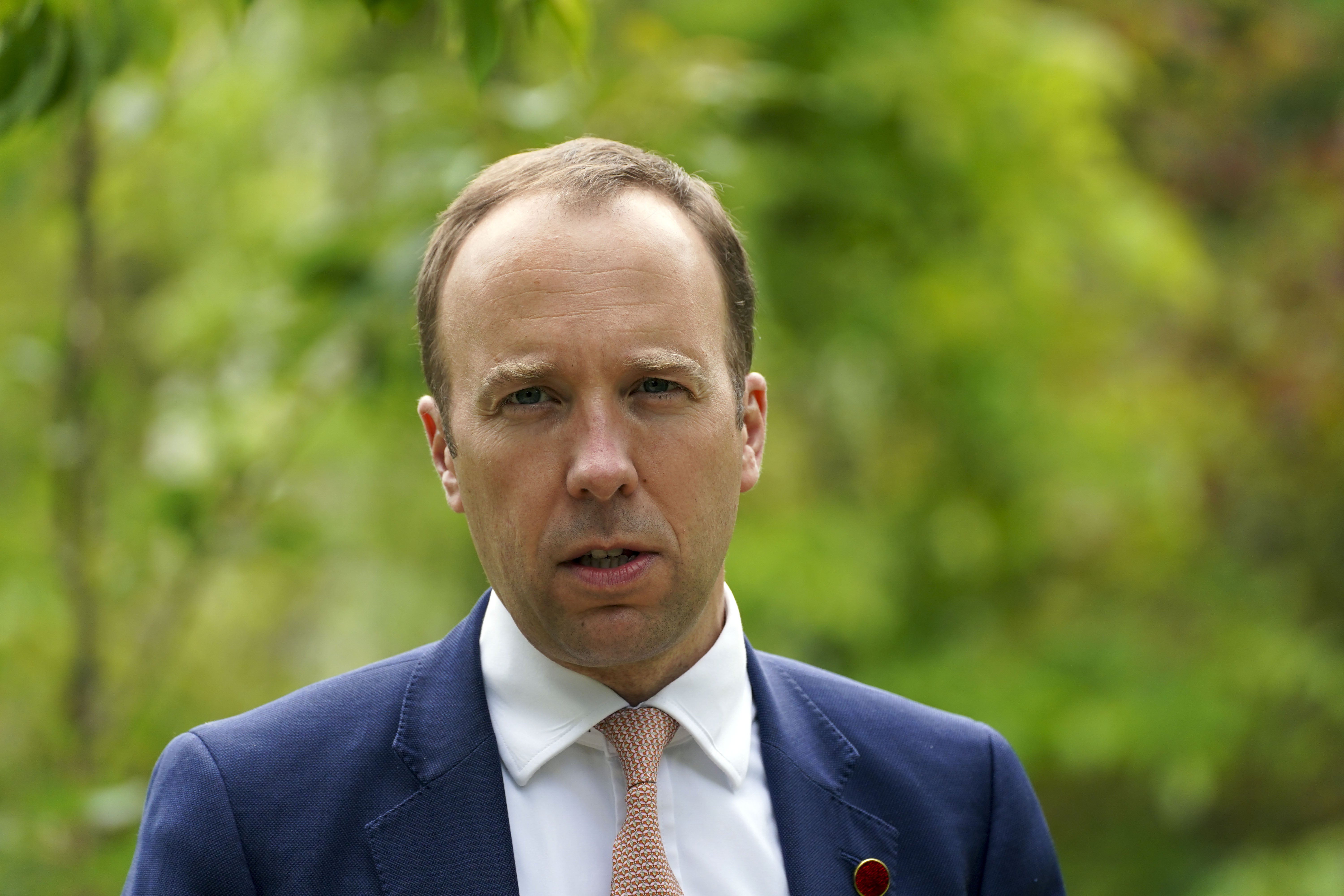
8 September 2020: Health secretary wrongly denies test and trace figures
While clashing with the shadow health secretary in the House of Commons about the performance of NHS Test and Trace in England, Matt Hancock disagreed with some statistics.
Jonathan Ashworth claimed that only 69.4 per cent of identified contacts were reached and asked to self-isolate, which the health secretary denied.
What was incorrect:
Mr Ashworth was right. The most recent at the time showed that 69.4 per cent of identified contacts of people who had tested positive for Covid-19 were reached by the service between 20 August and 26 August.
The figure refers only to close contacts identified by the tracing system, not all the actual close contacts that people with positive tests may have had.
16 July 2020: Health secretary insists on the wrong date for start of lockdown
In response to suggestions the government had implemented a coronavirus lockdown too slowly at the start of the pandemic, Matt Hancock told parliament: “The 16th of March is the day that I came to this House and said that all unnecessary social contact should cease. That is precisely when the lockdown was started.”
In response to further questions, he repeated the date and said: “That is when the lockdown truly started.”
What was incorrect:
There is no official definition of what a “lockdown” is, but the order to stay at home and accompanying lockdown laws did not come into force until later in March.
Also on 16 March 2020, the prime minister had called for people to stop “non-essential contact” in a televised statement, but called it “advice”.
It was not until 23 March 2020 that Mr Johnson told people they “must” stay at home and said that “we will immediately” close some businesses.
The Health Protection Regulations, which enforced the lockdown in law, came into force at 1pm on 26 March 2020.
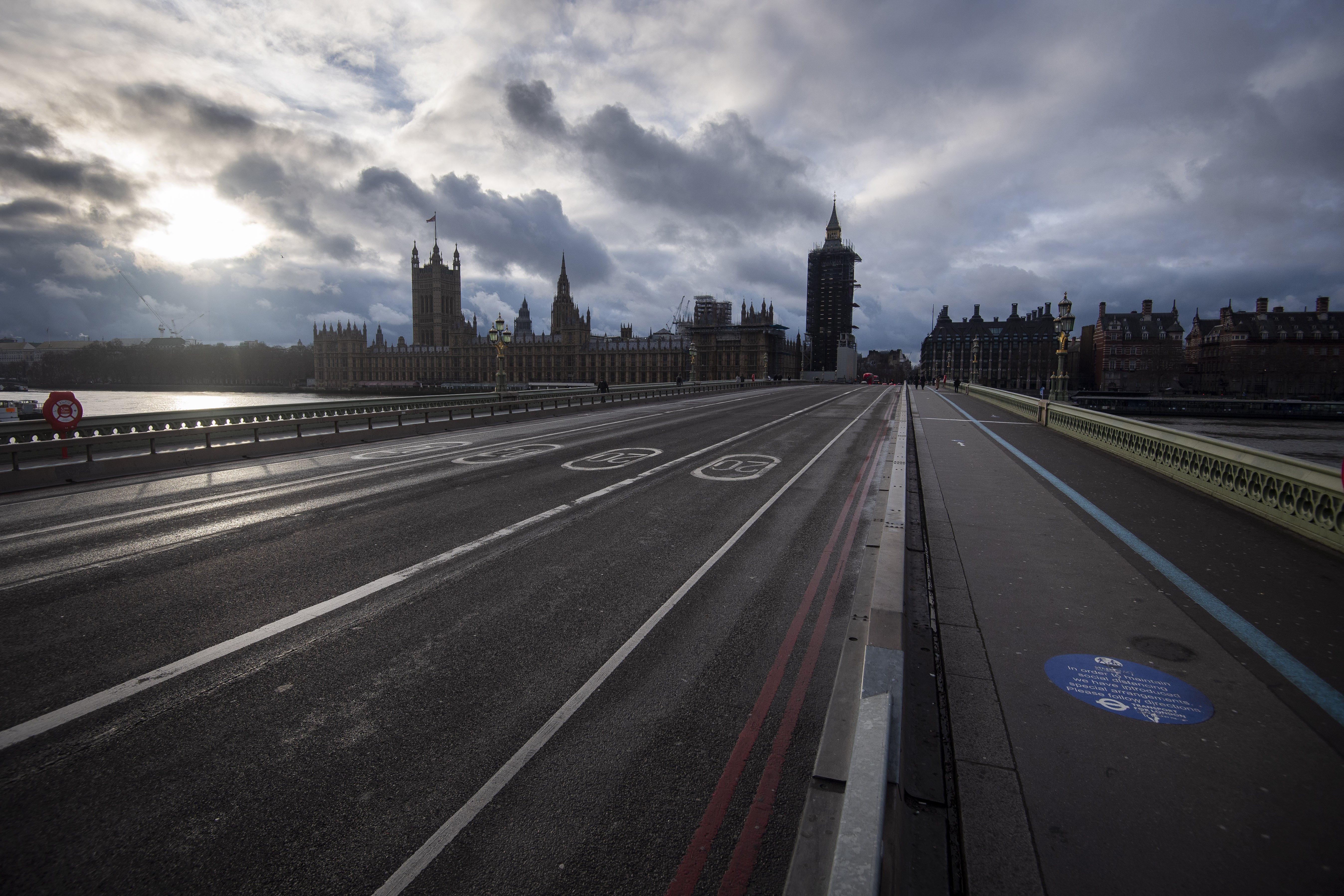
10 June 2020: Prime minister overstates the number of schools with pupils returning
During Prime Minister’s Questions on 10 June, Boris Johnson said: “There are some countries in the EU where no primary school kids are going back to school … 97 per cent of the schools that have submitted data are now seeing kids come back to school.”
What was incorrect:
Data published by the Department for Education shows that on that day, 69 per cent of the primary and nursery schools in England which submitted data were open to returning children. On average, during the first week of reopening, the number was 49 per cent.
Full Fact asked Number 10 where Mr Johnson’s figure came from and did not received a reply. It seems to refer to how many primary schools were open in any form, including those that remained open only to vulnerable or key worker children.
These schools were therefore not “now seeing kids come back”, as the prime minister said.
3 June 2020: Prime minister makes incorrect claim on Covid testing speeds
When asked how far the government had progressed towards delivering on its target to process Covid-19 tests within 24 hours in the House of Commons, Mr Johnson responded: “The tests conducted at the 199 testing centres, as well as the mobile test centres, are all done within 24 hours, and I can undertake to him now to get all tests turned around in 24 hours by the end of June, except for difficulties with postal tests or insuperable problems like that.”
What was incorrect:
Far from “all” tests being done within 24 hours, the proportion of people in England receiving their test result within 24 hours of taking their test in the week to 3 June 2020 was 19 per cent at regional test sites, 5 per cent at mobile testing units and and 6 per cent at satellite test centres.
Data confirming the prime minister has missed his pledge for all tests (except home tests and satellite centre tests) to be turned around within 24 hours by the end of June was published on 9 July 2020.
In the last week of June, 92 per cent of tests at regional test sites and 90 per cent of tests at mobile testing units were processed within 24 hours.
11 May 2020: Prime minister mistakenly says Covid-19 can be monitored through the water supply
During a statement on the government’s Covid-19 strategy, Boris Johnson spoke about an alert system that would allow for the detection and management of “flare ups” in local cases.
“The intention is that the Covid alert system, in time, will be sufficiently sensitive and flexible to detect local flare-ups, so that, for instance, if the Covid is detected in the water supply of a certain town or in a school in an area, steps can be taken,” he told the House of Commons.
What was incorrect:
There was some evidence showing that genetic material from the coronavirus could be detected in wastewater and researchers in several countries were assessing whether this could be used as an early-warning tool.
There was no evidence that Covid-19 can be found in treated water. A briefing by the World Health Organisation, published on 23 April 2020, stated that Covid-19 has not been detected in drinking water and “the risk of coronaviruses to water supplies is low.”
A Downing Street spokesperson told Full Fact that Mr Johnson misspoke, and meant to say wastewater, not water supply. The spokesperson said the alert scheme would involve monitoring levels of Covid-19 infection in the population through sewage.
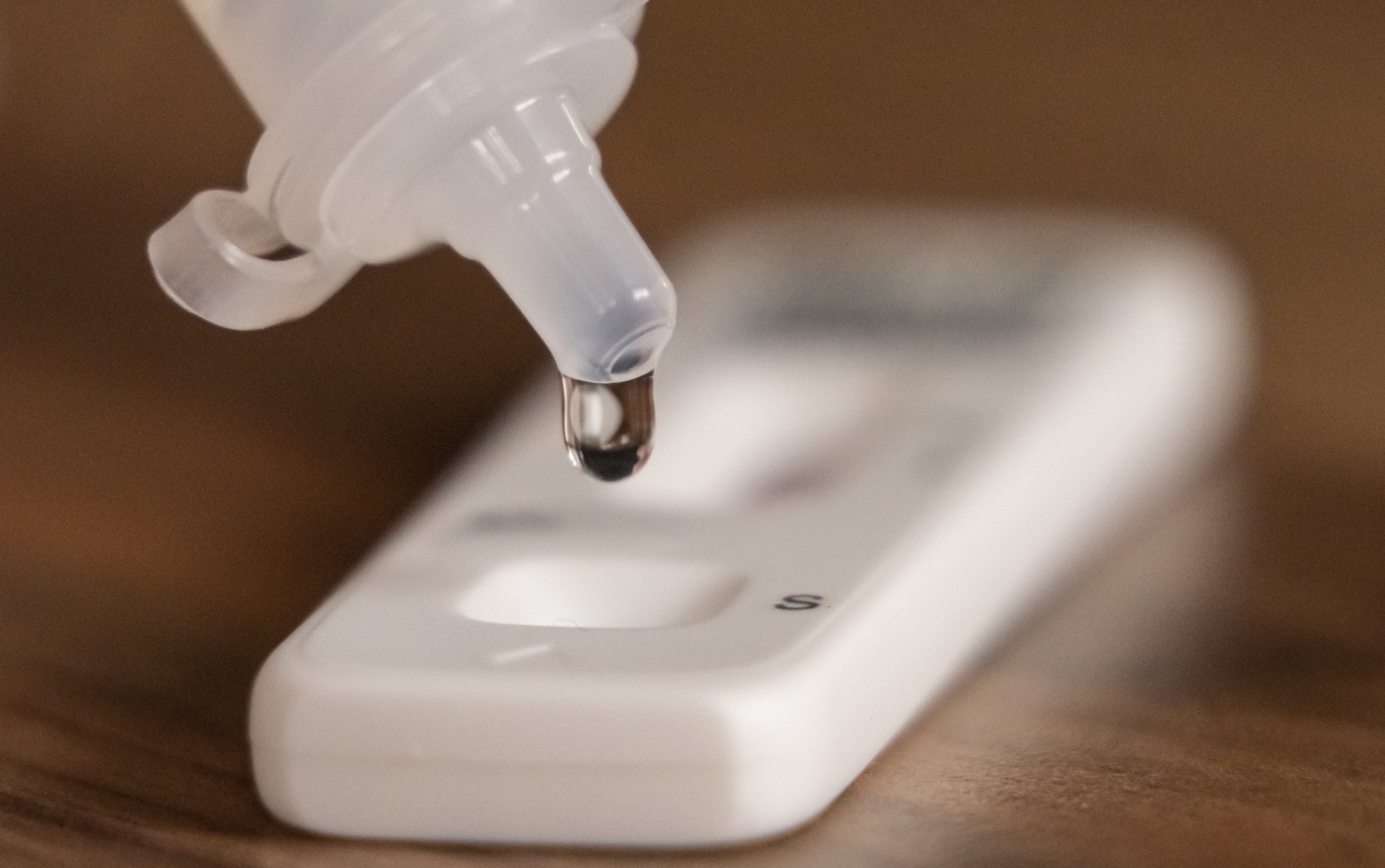
5 May 2020: Health secretary claims poll indicates 80 per cent of Isle of Wight residents would download Covid app
When being questioned on government plans to trial a Covid contact tracing app on the Isle of Wight, Matt Hancock told parliament: “According to a very early poll, 80 per cent of people on the Isle of Wight want to download it.”
What was incorrect:
He later clarified that the poll was done by Isle of Wight Radio and the Department of Health and Social Care told Full Fact it was a vote on Facebook.
There was no way of telling if the results, showing 79 per cent of respondents saying they would download the app, represented the actual views of residents of the Isle of Wight.
Representative sampling, guarantees that respondents lived in the Isle of Wight, and other safeguards normally used for polls used by the government were not in place.
Between 10 and 13 April 2020, pollsters Ipsos-MORI, surveyed British adults and found 65% supported mobile phone service providers giving the government roaming data to track Covid-19 cases.
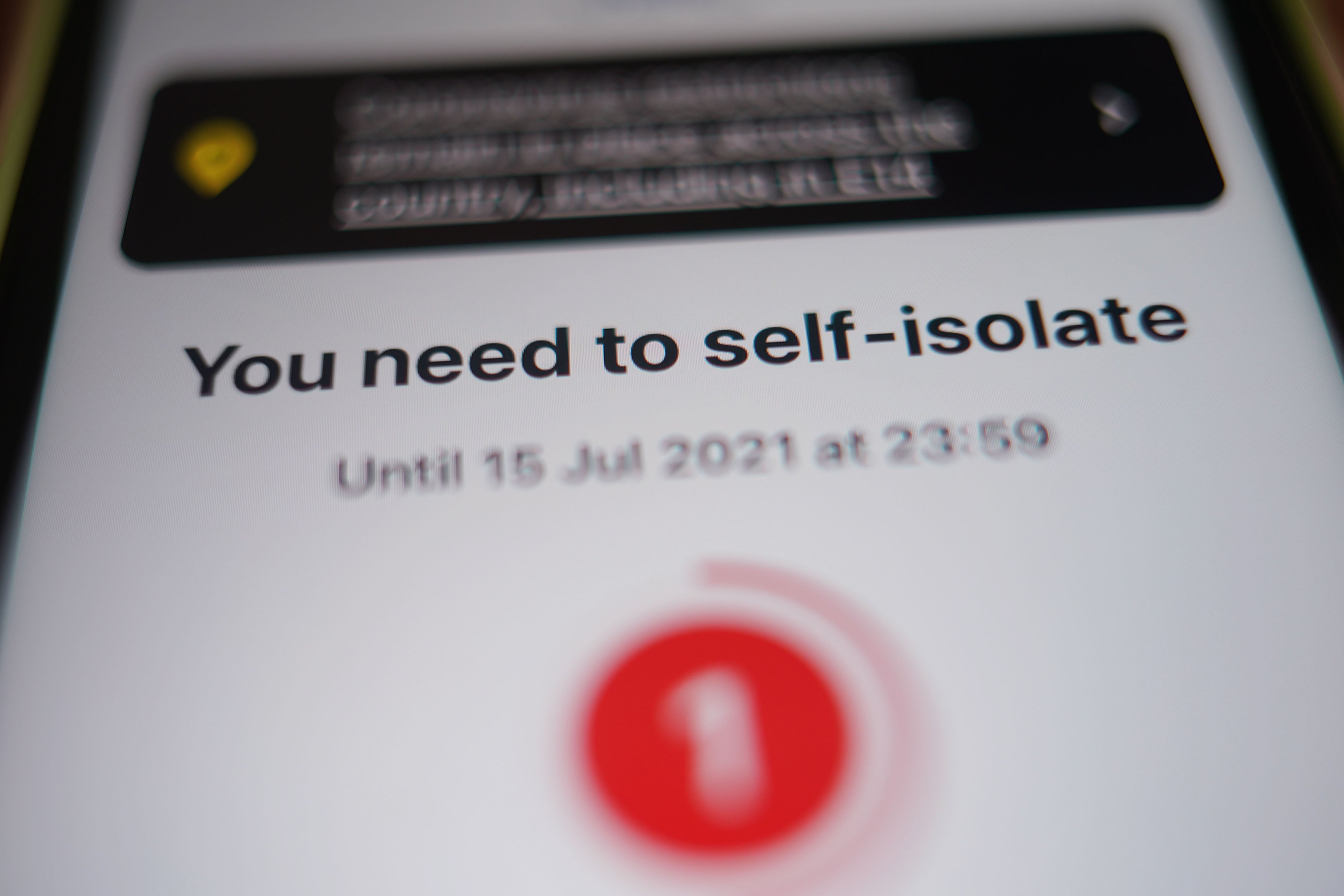
29 January 2020: Prime minister makes incorrect claim on economic growth
During Prime Minister’s Questions, Boris Johnson said: “The economy, under this Conservative Government, has grown by 73 per cent.”
What was incorrect:
There are numerous ways to measure the economy, but one of the most common is to look at Gross Domestic Product (GDP). This is the total value of everything that happens within a country’s economy.
Under Conservative-led governments since 2010, the UK’s GDP had grown by around 20 per cent, not 73 per cent as Mr Johnson said. We’ve asked his office for more information.
The 73 per cent figure was how much the economy grew between 1990 and 2017, which comprised 13 years of Labour government, more than 10 years of Conservative government and five years of the coalition.
Subscribe to Independent Premium to bookmark this article
Want to bookmark your favourite articles and stories to read or reference later? Start your Independent Premium subscription today.
Join our commenting forum
Join thought-provoking conversations, follow other Independent readers and see their replies
Comments